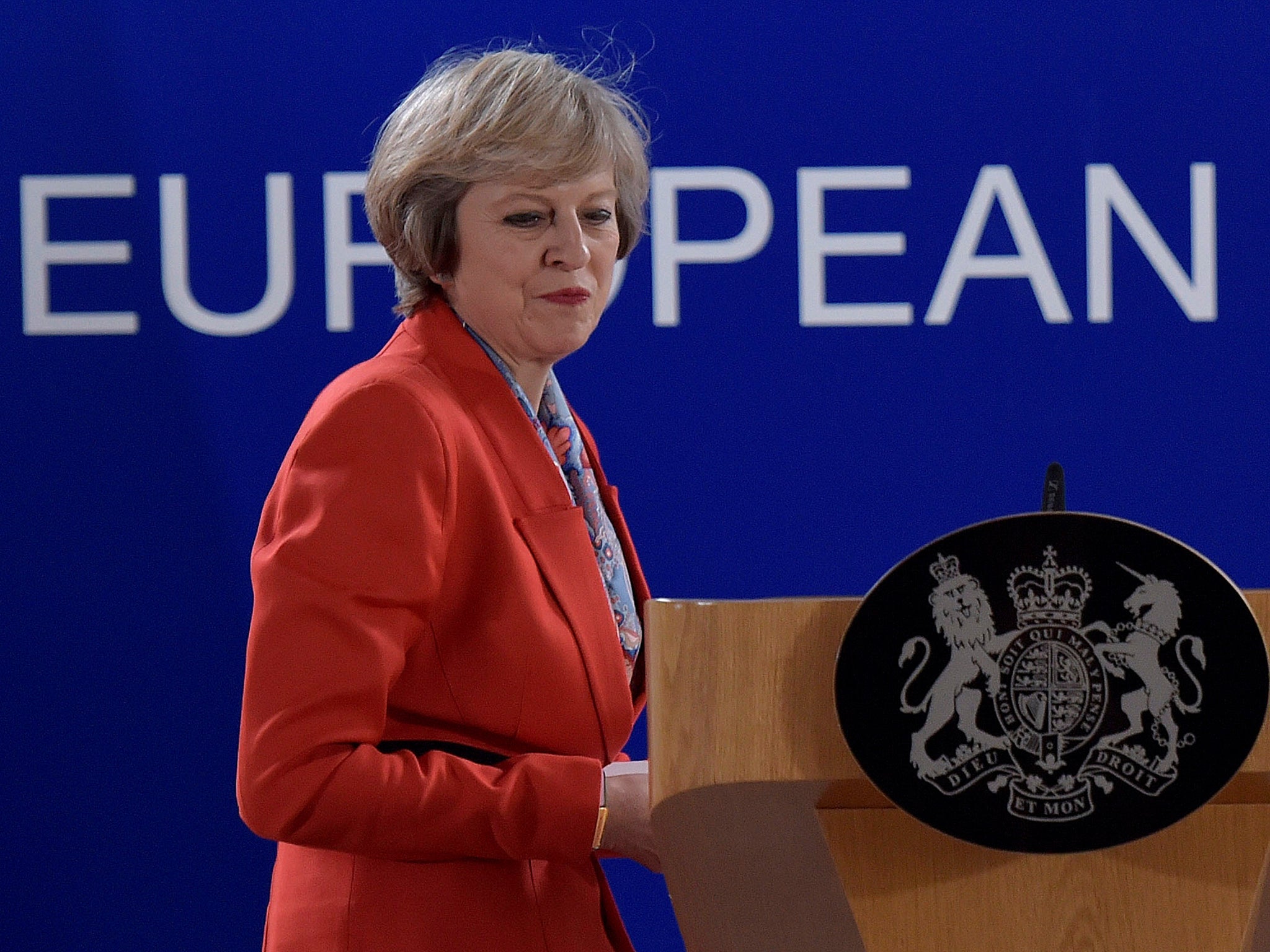By dithering over Brexit, Theresa May has been outmaneuvered by the High Court
As Labour have dithered so woefully in recent months, it’s understandable that May thought she’d be able to bulldoze her way through Brexit


This week, Theresa May invoked laughs galore at the Spectator’s annual gala to receive her Politician of the Year award from a vanquished George Osborne, when she ascended the stage dressed in a high visibility jacket and a hard hat. It was certainly amusing, even for George, but he will surely now be smirking to himself that it might be an image that comes back to haunt her.
Following the High Court ruling that Parliament must vote on her government invoking Article 50 of the Lisbon Treaty, her plan (or lack thereof) has suddenly become far more visible to a watching public, and she faces a hell of a task getting this industrial sized job done.
May had started as the Tory unity candidate, appointing “The Three Brexiteers” to oversee Article 50, keeping her powder dry with European counterparts and quelling any suggestion of either a second EU or Scottish referendum. Lazy Iron Lady comparisons abounded, but the ruthless and understated May seemed so much more. On many issues, she seemed to be a reliable figure.
The foundations of her Brexit project, however, were built on sand.
The legend “Brexit means Brexit” had already become a rod for her back long before today’s announcement, yet there has been no let up in its utterance. At first, it allayed fears of a fudged pact with Brussels, promising definitive action. It didn’t take long before its emptiness was revealed, turning out to be little more than a chirruping parrot’s stock phrase; one suspects those repeating it possess less expertise on the matter than the average tropical bird.
As financial and social disorder slowly emerges on the continent, with a potential crisis brewing at Deutsche Bank and in Italy, as well as the rise of the Austrian far-right and a referendum against refugees in Hungary, Theresa May’s initial refusal to be bullied into beginning negotiations prematurely appeared sensible. As usual though, there was no floor plan. This was not an example of our government waiting for Europe to blink. They simply didn’t have a clue what move to make next.
No planning permission exists for Theresa May’s Brexit, and the government have been outmanoeuvred in court; the ruling said that to trigger Article 50 without consulting Parliament would fundamentally undermine the democracy Brexit is meant to strengthen. As Labour have dithered so woefully in recent months, it’s understandable that May thought she’d be able to bulldoze her way through. Opposition has now been sought via other means.
Such an authoritarian streak will win her few friends, especially amongst Brexiteers already smarting from Amber Rudd’s appalling proposal of quotas for workers at the Tory Party conference. It must be a source of relief to Conservatives that they can still be assured of a majority, were they to call a snap general election. The latest YouGov poll gives them a fourteen point lead.

Even fervent Eurosceptics must applaud the decision that the question must now be put to Parliament: this is, after all, what they wanted. It is unquestionable though that the Government’s dithering has left the way open for those who campaigned to remain in the EU (that is to say, those wishing to cede parliamentary power to Brussels) to claim the moral high ground by rightly demanding parliament has the final say.
There’s something oddly romantic about the idea of wanting to return more power to the chambers of a once great building that is literally crumbling before our eyes. Practically speaking, Theresa May will be grateful for that hard hat when she finds herself dodging falling masonry over the next few years. The longer Article 50 drags on though, it won’t just be the brickwork the hat protects her from: she’ll need it for the slings and arrows of legal challenges, the opposing benches and, if the pro-Europe “Cameroon” wing of her party rebel, perhaps even her own benches too.
Join our commenting forum
Join thought-provoking conversations, follow other Independent readers and see their replies
Comments
Bookmark popover
Removed from bookmarks